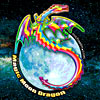The Western practice of eating salads at the beginning of meals is because of a natural reaction the human body has to bitter foods (bitter in taste, as contrasted with bitter in the Chinese flavor system). When the tongue tastes bitter, the body starts producing digestive fluids, such as saliva and stomach acids. By eating salads first in a meal, the nutrients in the food that follows are absorbed more efficiently, resulting in better health.
Chinese medicine divides foods and herbs into seven flavors, each representing a basic Energetic property. Note that the flavors are based on the effects on the body and may differ from actual taste.
Bitter is Clearing and Drying. Clearing is the oppostie of Tonifying and can be used to treat Heat excess and Toxin excess. Drying is the opposite of Moistening and can be used to treat Damp stagnation.
Ayurveda medicine: Bitter Taste. “Bitter Taste is made up of Air and Ether (space) found in herbs like Golden Seal, Gentian, and vegetables like bitter melon (Karela). Bitter Taste is Alterative (blood purifying), cleansing and detoxifying. It is antibiotic and antiseptic, relieves inflammatory diseases of the skin, and also clears and cleanses the mind and emotions. It decreases Pitta and Kapha but increases Vata. It is dry, cold and light in character. In excess, this taste produces dryness, loss of strength and weakens the appetite etc.”, according to Dr. Ram Tamang of The Healing Gardens of Ayurveda.
from “Chrak Samhita”:
XVI. 43
DESCRIPTION OF THE SIX TASTES
AyurvedicV. Bitter
Bitter taste, though it does not taste good in itself, restores the sense of taste. It is detoxifying, antibacterial, germicidal, and kills worms. It relieves fainting, burning sensation, itch, inflammatory skin conditions and thirst. Bitter taste creates tightness of the skin and muscles. It is antipyretic, febriguge; it enkindles digestive fire, promotes digestion of toxins, purifies lactation, helps scrape away fat and remove toxic accumulations in fat, marrow, lymph, sweat, urine, excrement, Pitta and Kapha. It is dry, cold and light.
Yet when used by itself or in excess, owing to its natural properties of dryness, roughness and clearness, it causes a wasting away of all the tissue elements of the body. Bitter taste produces roughness in the vessels, takes away strength, causes emaciation, weariness, delusion, dizziness, dryness of the mouth and other diseases of Vata.
from “The Art of War”:
=
Chapter 5
ENERGY
by Sun TzuThere are not more than five cardinal tastes (sour, acrid, salt, sweet, and bitter), yet combinations of them yield more flavours than can ever be tasted.
slightly bitter foods and herbs
bitter foods and herbs
Chinese flavors
See also yin foods, yang foods, and neutral foods













